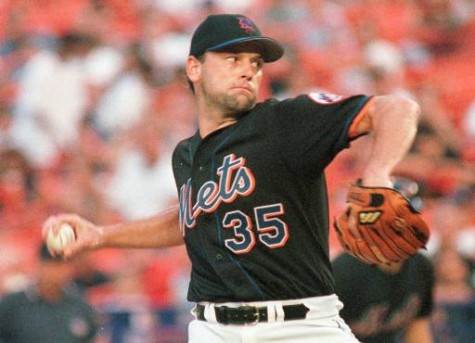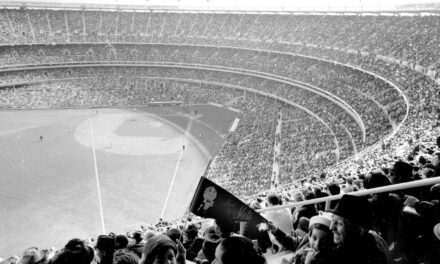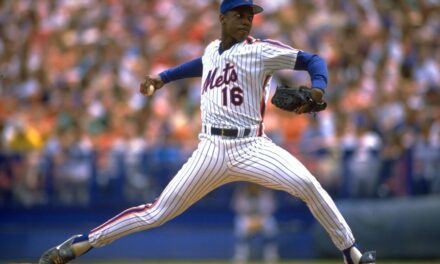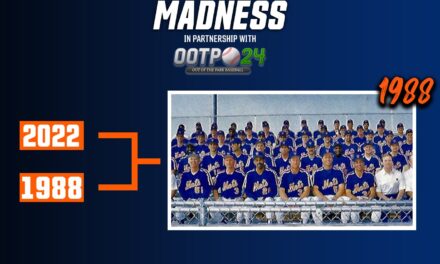
This offseason, we’ll look at the Mets history with free agency — the best uses of their money and the worst. We’ll start positive with someone who unlike so many on these lists joined the team in complete obscurity but became a reliable pitcher during one of the franchise’s best eras.
Even by today’s standards, when free-agent signings garner more attention and scrutiny, the acquisition of Rick Reed to a minor league deal on November 7, 1995 was far from anyone’s radar.
He was a well-traveled 31-year-old journeyman. With four organizations, Reed traveled countless miles between the majors and minors. And while many lamented the player’s strike which canceled out the remainder of the 1994 season, it was ultimately a benefit to Reed — who was a potential replacement player as the strike carried over into 1995.
His search for consistency, and a long-term major-league home, ended shortly after 1996. That year was spent pitching for the Triple-A Norfolk Tides. His success there earned him a major-league roster invite in spring training 1997. On Opening Day, he would be a Met for good.
Over four-plus seasons, Reed enjoyed a 117 ERA+, a 1.155 WHIP, and a 16.4 WAR. His stuff was never spectacular. His fastball wasn’t fast enough to overpower opposing hitters. In fact, he averaged only six strikeouts per nine innings. But his ability to induce ground balls worked splendidly with a terrific infield behind him.
Reed became the most pleasant surprise of the New York staff in ’97, going 13-9 and posting the sixth-best ERA in the National League at 2.89. His solidification in the rotation continued into ’98 when he earned his first All-Star nod and was the lone Met representative in the Midsummer Classic.
The acquisition of Al Leiter pushed Reed down in the starting pitching hierarchy, but eventually gave him the opportunity to become a factor in several important games as the Mets moved into championship contention.
With New York desperately needing a win to remain in the Wild Card race, Reed went the distance on the next-to-last day of the regular season — three-hitting the Pittsburgh Pirates and striking out 12 in a complete game shutout.
The Mets advanced to the postseason and eventually into the NLCS, where he pitched seven solid innings in a 3-2 win over Atlanta in Game 4 to stave off elimination.
Reed was the starter in the Mets’ lone victory during the 2000 World Series. He went six, allowing two runs and striking out eight. Although he left with his team behind, the Mets would eventually rally to win in the late innings.
Not long after his second All-Star nod in 2001, he was off to Minnesota. In return, the Mets got Matt Lawton, an outfielder general manager Steve Phillips believed could aid their difficulty in scoring runs.
Although the Mets rallied from 13.5 games out in mid-August, the offense never showed significant improvement. Lawton, a .305 hitter with the Twins a year before, batted .243 and was basically a non-factor. Also lacking was a starting pitcher who could come through in a big spot — like Reed showed several times over.
For a pitcher who garnered next-to-no recognition when he joined the Mets, Reed’s departure marked a bad trade in team history. While the Mets and their fans were hurt by this exchange, for their departed right-hander — who retired by 2003 — the deal cut even deeper. “Baseball kinda died for us, my wife and I,” he said to the New York Daily News in 2010. “I was tore up.”
Reed’s importance to some of the best teams of the last quarter-century make him one of the most underrated Mets ever.














